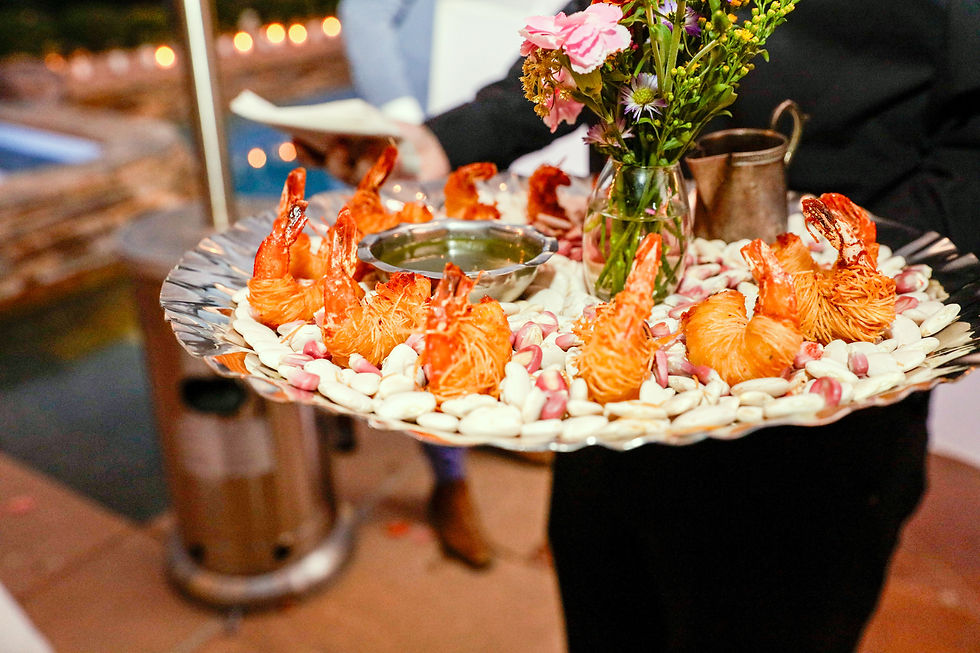See Our Party Catering for a Doljanchi with Korean Fusion Dishes
- Chef Amy

- Sep 7, 2020
- 3 min read
Updated: Dec 2, 2020

One of our favorite specialties is "fusion" menus for party catering for different cultures, along with wedding catering for different traditions. Fusion combines different culinary ingredients and techniques in a single dish. Recently we catered a modern doljanchi, and we prepared each popular dish with our own unique personal style.
What is a doljanchi?
A doljanchi or dol is a party in Korean culture celebrating a child's first birthday. The modern doljanchi has its origins in 1700s Korea, when the infant mortality rate was high and a child was considered to be "blessed" if they lived to be one year old. The modern doljanchi is a bright and colorful event that celebrates life and all its possibilities.
(photos courtesy Allison M. Cruz)

What kinds of foods do you serve at a doljanchi?
That depends on the mood you want to create for your party guests. In a modern doljanchi, larger extended families enjoy family-style catering, a sit-down meal where guests at a table share from common platters. Lighter fare like appetizer catering (hors d'oeuvres), or buffet catering with small plates, keeps guests on their feet, mingling and laughing and having fun.
Guests love our fusion party catering! We put our personal spin on traditional dishes at a doljanchi like bulgogi beef as yummy bulgogi sliders with kimchi slaw. At one of our underground dinner parties that showcase our wedding catering, we served traditional catering from Japan, China, Thailand, the Philippines, and Malaysia. We do party catering with Mediterranean food, French food, fun themes like bacon and cheese, and more.
Watch this video of our doljanchi catering at a magical Japanese tea house and garden in Pasadena.
Do both boys and girls celebrate a doljanchi?
Like bar and bat mitzvah in the Jewish culture, Koreans celebrate a doljanchi for both boys and girls. Unlike bar and bat mitzvah catering, though, the event has the same name for both genders.

What's the difference between a doljabi and a doljanchi?
A doljabi is an important part of a doljanchi. A doljabi is a game where several items are placed before the child, each item representing a possible future. Parents and party guests encourage the boy or girl to choose a item, and that choice determines what their lives will be like.

What do the items in a modern doljabi signify?
Rice -- good health and comfortable finances (food so you don't go hungry)
Writing brush for calligraphy (sometimes a pen or a pencil) -- academic success and a sensible career like scholar, writer, or person in government
Coins or bills -- wealth
Thread -- a long life
Modern doljanchis also seek to influence a child's specific career choices:
Stethoscope or other medical items -- doctor
Gavel or other legal items -- a lawyer or judge
Microphone or other entertainment items -- celebrity in music, film, and other arts
In some doljanchis, parents wrap each item in bills of large denominations, so that wealth is guaranteed no matter what the outcome.



The gorgeous florals on the dining tables were created by Gigi Saunders.

Beautiful event design and planning by Francesca. She created these centerpieces with the party themes of tigers, butterflies, feathers, and axes.

Francesca incorporated all those elements in a fairy-tale book she wrote and illustrated herself. Amazing!








Comments